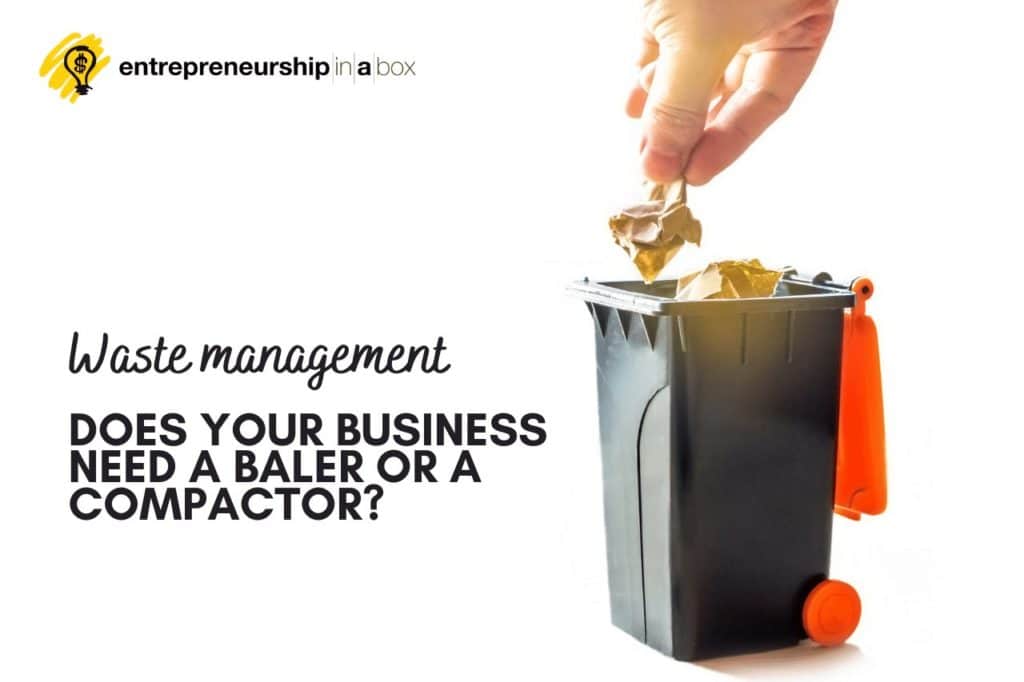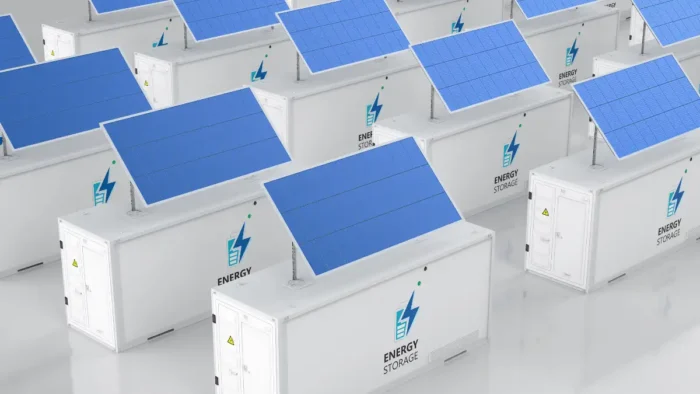As an entrepreneur, you already know that using effective waste management is of the utmost importance when running a business. In a time and age when environmental issues are becoming increasingly severe, all companies should focus on developing eco-friendly strategies and finding ways to reduce and prevent the negative impact of human activity on the planet. While all of us should contribute to this endeavor, businesses have the power and the means to make a bigger difference.
Besides benefiting the environment and ensuring a safer and healthier space for all of us, adopting sustainable waste management and recycling methods also help businesses thrive by boosting brand reputation and improving finances.
If your company generates significant amounts of waste materials and you’re wondering how you can make your business greener and manage waste the smart way, you’ve probably heard of balers and compactors already. But which of these machines should you choose? Is one better than the other or should you purchase both? Understanding how balers and compactors can help your business and choosing the equipment that will suit your needs requires a bit more research on the matter.
Balers vs Compactors
Before investing in a piece of equipment, it’s important to learn about its characteristics. You should start by understanding the similarities and differences between balers and compactors and the purposes they serve.
Both machines are great additions to your waste management system, but they are not one and the same thing. When it comes to similarities, balers and compactors will both make handling waste a lot easier. They are designed to reduce the volume of waste materials through compression. The difference is made by the materials they process. Let’s find out a bit more about their features to help you decide which one is right for your business.
Balers
Balers are designed to compress recyclable materials such as cardboard, paper, plastic, and metal into compact bales. Many companies already have a policy in place for sorting out recyclable materials, but many times these materials take up a lot of space, create an untidy environment and pose safety hazards.
When a baler is used to handle recyclable waste, the bales it produces can be easily stored away until a waste disposal company picks them up and takes them to a recycling center. Besides reducing the amount of waste that goes to the landfill, businesses can also create a revenue stream from selling bales to recycling companies.
You should also know that not all balers are created equal and reputable companies offer a variety of models to cover all business needs. For example, Mil-tek balers come in various sizes and can process different volumes of waste. Whichever type you choose for your company, these are the benefits you should expect: reduced time for handling waste materials, easier handling, less space required for waste storage, a cleaner site and lower waste disposal costs.
Compactors
Compactors are ideal for businesses that need to dispose of large amounts of waste. As the name implies, they are used to compact waste, just like balers, but the difference is they process unsorted mixed materials. The materials are compacted into a container and when the container is filled, a waste disposal provider brings a new container and takes the full one to the landfill.
Compactors are usually larger than balers, but it doesn’t mean they’ll occupy a lot of space on business premises. Most models can fit perfectly on any business site and are safe and easy to operate. The most important advantages when using a compactor include: reduced waste volume, better space management, efficient waste disposal process, fewer waste pickups, less money spent on waste disposal.
Conduct a waste audit
Now that you understand the advantages of using both balers and compactors, it should be a lot easier for you to decide. However, if you want to develop a smart waste management system, you should take things one step further and conduct a waste audit. Here are the steps you should follow:
- Collect all the waste you generate over a given period of time from all areas of your business to help you identify waste sources and gain a better understanding of waste production in your company
- Sort the waste you’ve collected on categories and note which types of waste materials were mixed
- Analyze the waste you’ve sorted. Observe which areas of your business produce the most waste, identify the sources of unsorted waste, keep track of waste disposal costs for each type of waste etc.
- Use the data you’ve gathered to implement better waste management practices and reach you sustainability goals
Tips to reduce waste
Buying a baler or a compactor for your business is a big step forward towards joining the green movement, but it’s just one piece of the puzzle. If you really want to make your business environmentally friendly, you have to approach waste management from different angles and take further measures. Consider the following strategies to help your business continue on the eco-friendly path:
- Reduce single-use items – a lot of the waste generated by businesses comes from the single-use items on the premises. From disposable coffee cups to plastic cutlery or single-use containers, these apparently small items can add up and create large amounts of waste.
- Ditch bottled water – something as small as plastic water bottles can actually cause a lot of pollution and also take a lot of space in the bin, leading to more frequent waste pickups. You can turn things around by installing water filters and coolers.
- Print less – it goes without saying that going digital is much better than using tons of paper every day for printing. In the digital era that we live in it’s not difficult to go paperless.
- Recycle electronic waste – e-waste poses serious health hazards for the environment, so make sure you dispose of the devices and gadgets you don’t use anymore in a safe and efficient manner.





